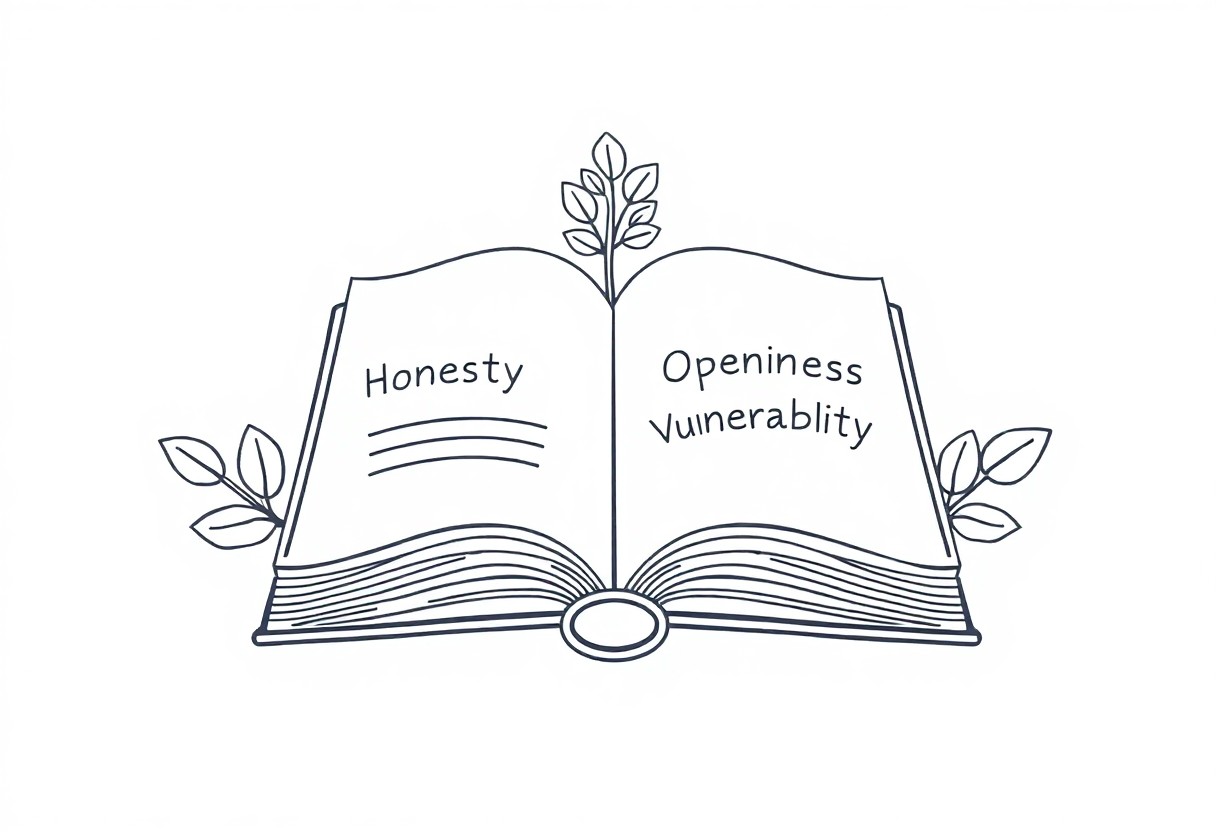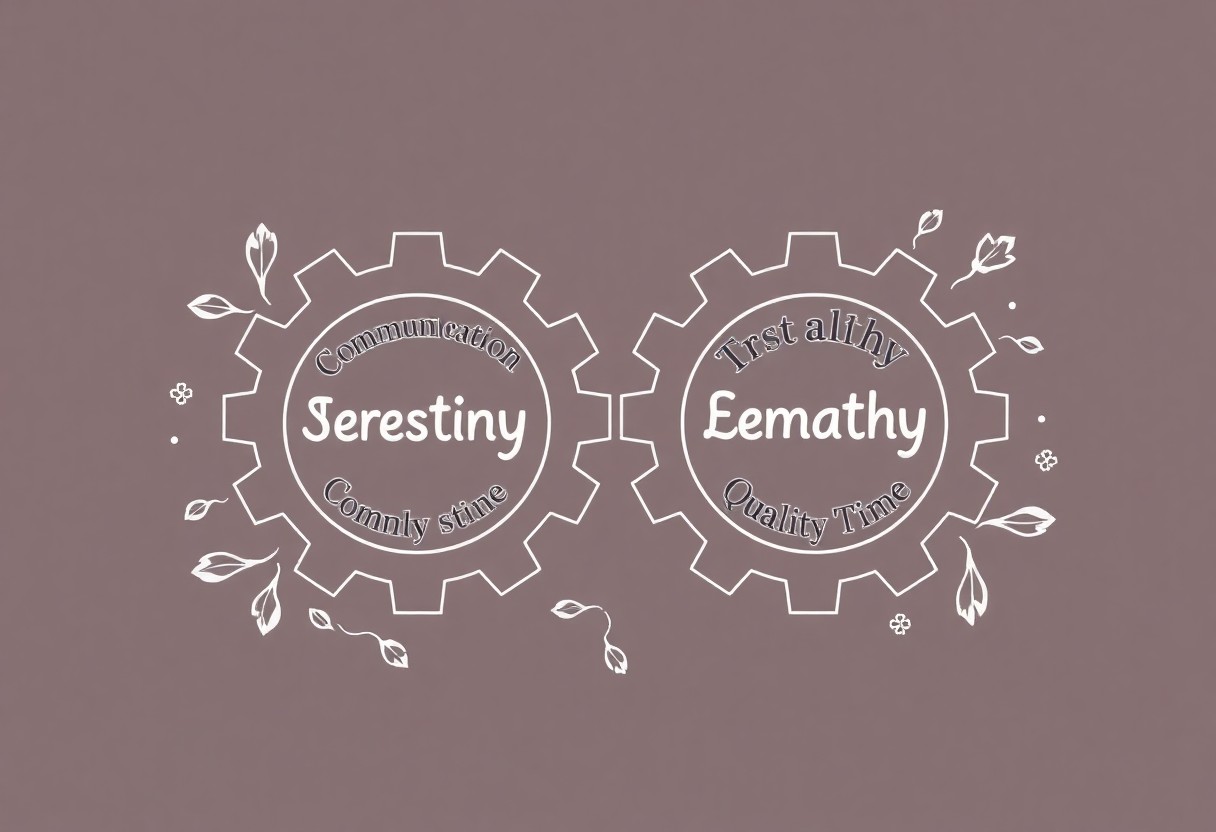Secrets to a Healthier Relationship You Haven’t Heard
Wellness in your relationship often hinges on insights that are less commonly shared. By focusing on open communication and emotional vulnerability, you can dismantle barriers that hinder connection. It’s crucial to practise active listening and to nurture each other’s individuality. Establishing shared goals can foster collaboration and deepen your bond. These often-overlooked strategies will help you cultivate a relationship that thrives on trust and understanding, leading you to a more fulfilling partnership.
Key Takeaways:
- Open and honest communication fosters trust and intimacy.
- Prioritising quality time together enhances emotional connection.
- Practising gratitude strengthens relationship satisfaction.
- Setting and respecting boundaries improves mutual understanding.
- Embracing vulnerability can deepen emotional bonds.
Understanding Relationship Dynamics
Every relationship functions within a set of dynamics that shapes interactions, emotions, and overall satisfaction. Recognising these dynamics allows for a more profound understanding of emotional patterns, expectations, and conflicts. By identifying how you and your partner respond to various situations, you can foster healthier interactions and create a more nurturing environment. Awareness of these underlying mechanisms can lead to more effective problem-solving and enhanced emotional connection.
The Importance of Communication
Communication serves as the backbone of any relationship, influencing how you and your partner connect and resolve conflict. Engaging in open dialogues enables both of you to express your feelings, needs, and concerns without fear of judgement. By actively listening, you tend to validate each other’s experiences, fostering deeper intimacy and trust.
Identifying Patterns in Relationships
Patterns in relationships can reveal recurring behaviours and responses that might impede your connection. Understanding these patterns involves recognising how past experiences influence your current interactions. For instance, if you notice yourself retreating during disagreements, it may signal an ingrained response to avoid conflict. Shifting these patterns requires mindfulness and a willingness to adapt.
To effectively identify patterns, start by observing your interactions over time. Consider keeping a journal to reflect on significant moments, noting any emotional reactions or conflicts. By analysing recurring themes, such as communication breakdowns or emotional withdrawals, you can pinpoint exact triggers. Engaging in discussions with your partner about these insights fosters openness, allowing both of you to alter negative behaviours and cultivate a healthier dynamic. Over time, transforming these patterns not only enhances your relationship but also promotes personal growth.
The Role of Emotional Intelligence
Emotional intelligence (EI) serves as the backbone of healthy relationships, enabling you to both understand and manage your emotions alongside those of your partner. High EI contributes to greater empathy, improved communication, and a deeper connection, ultimately leading to a more satisfying partnership. When you cultivate your emotional intelligence, navigating challenges becomes less daunting, allowing for a more resilient bond.
Developing Empathy
Empathy involves genuinely recognising and understanding your partner’s feelings. By actively listening to their thoughts and emotions, you create a safe environment where they feel validated. Practising empathy means putting yourself in their shoes; this not only strengthens your emotional connection but also promotes patience and understanding.
Managing Emotions Effectively
Effectively managing your emotions can significantly enhance your relationship’s quality. This skill empowers you to respond thoughtfully rather than react impulsively, which can otherwise lead to misunderstandings and conflict. Regularly reflecting on your emotional triggers helps you maintain composure during challenging interactions, fostering a healthier dialogue.
To manage your emotions effectively, consider techniques such as mindfulness and deep breathing. These practices enable you to gain clarity before reacting, reducing the likelihood of overexposure to negative emotions. Journaling can also help track patterns in your emotional responses, making it easier to identify triggers and develop strategies for healthier reactions. By prioritising emotional management, you not only enhance personal well-being but also contribute positively to your partner’s emotional experience, nurturing a more harmonious relationship.

Building Trust and Transparency
Establishing trust and maintaining transparency within your relationship are vital components for nurturing a deep and lasting connection. This process involves openly sharing your thoughts and feelings, being vulnerable with each other, and consistently following through on promises. A relationship built on trust not only fosters emotional security but also encourages both partners to grow together through honesty and mutual respect.
The Foundation of Trust
The foundation of trust relies on mutual respect and reliability. You should feel confident that your partner values your feelings and opinions, while they, in turn, need assurance of your commitment. Simple actions, like fulfilling agreements or being punctual, contribute significantly to building this trust. It takes time and consistency to strengthen this foundation; therefore, patience is key.
Open Communication Practices
Fostering open communication requires a commitment to dialogue where both partners feel free to express their thoughts without fear of judgement. Utilise active listening techniques, pay attention to non-verbal cues, and approach sensitive topics with empathy. Such practices create a safe space for sharing, leading to stronger bonds and quicker resolution of misunderstandings.
Engaging in open communication means setting aside dedicated time for discussions, free from distractions. This could involve regular check-ins where you explore each other’s feelings about the relationship, addressing any concerns or expectations. Implementing active listening reinforces that both partners are fully heard and valued. Remember that tone and body language significantly impact how messages are received, so approach conversations with a constructive mindset. By creating an environment where both partners can candidly share without hesitation, you pave the way for a healthier, more resilient relationship.
Conflict Resolution Strategies
Effective conflict resolution transforms disagreements into opportunities for growth. Understanding the underlying issues and communicating openly can alleviate tension, paving the way for constructive solutions. Adopting systematic approaches ensures that both partners feel heard and respected while addressing conflicts. Techniques such as active listening and negotiating compromises help to diffuse negative emotions. Making a commitment to resolve issues as a team will strengthen your connection and lead to healthier interactions in the future.
Healthy Disagreements
Healthy disagreements foster understanding and intimacy rather than resentment. Engaging in arguments can allow you to express differing viewpoints while reinforcing mutual respect. By maintaining a calm demeanour and focusing on specific behaviours rather than personal attacks, you can navigate these discussions productively. Conflict becomes a shared experience, paving the way for deeper connection and insight into each other’s perspectives.
Finding Common Ground
Finding common ground is fundamental to resolving conflicts amicably. This process requires both partners to uncover shared values and goals, which can illuminate potential solutions. By focusing on what you agree upon, rather than what divides you, the path towards resolution becomes clearer. Establishing common interests fosters unity and encourages collaboration, enhancing your bond through conflict resolution.
Identifying common ground opens avenues for compromise and collaboration in relationships. For instance, if you and your partner disagree about finances, instead of fixating on differing spending habits, explore your shared goal of financial security. Such discussions help you appreciate each other’s perspective and drive towards a mutually beneficial solution. Moreover, utilising techniques like brainstorming together can uncover innovative solutions and strengthen your connection, making both partners feel valued and understood.
Prioritising Quality Time
Prioritising quality time in your relationship fosters connection and reinforces emotional bonds. Setting aside uninterrupted moments allows you to engage in meaningful conversations, share experiences, and truly listen to each other. Dedicating even a small amount of time each week for activities you both enjoy creates a nurturing environment where both partners feel valued and understood.
The Power of Shared Experiences
Engaging in shared experiences significantly enhances your relationship. Participating in activities together, whether exploring new hobbies or travelling, creates lasting memories and strengthens your connection. Shared experiences build empathy and understanding, allowing you both to relate more deeply and appreciate each other’s perspectives.
Creating Rituals and Traditions
Crafting rituals and traditions can enrich your relationship immensely. Regular activities, such as Sunday brunch or a monthly movie night, offer stability and something to look forward to, reinforcing your bond. These shared moments cultivate a sense of belonging and improve communication, as both partners feel increasingly connected to each other.
Consider introducing unique rituals that reflect your relationship’s personality. For instance, writing each other handwritten notes on special occasions or creating a yearly scrapbook can encapsulate your journey together. Establishing traditions like cooking a dish from a different culture each month not only strengthens your bond but also encourages exploration and excitement in your everyday life. These personalised rituals serve as a foundation, anchoring your relationship amidst the ever-changing tides of life.
The Impact of Personal Growth
Your journey of personal growth significantly affects the dynamics of your relationship. As you evolve, your experiences, beliefs, and interests shift, ultimately reshaping the way you interact and connect with your partner. This ongoing development fosters resilience, enhances communication, and creates a deeper understanding of each other. In a healthy partnership, both individuals should aspire to grow, as this not only enriches their own lives but also strengthens the bond they share, paving the way for a more fulfilling connection.
Supporting Individual Goals
Encouraging your partner’s aspirations fosters a positive environment where both of you can thrive. Sharing your dreams and supporting each other’s endeavours creates a sense of partnership that celebrates individual achievements. By actively engaging in discussions about personal goals, you can help each other identify actionable steps, providing motivation and accountability. A relationship flourishes when both partners invest in their growth, leading to greater satisfaction and shared joy in each other’s successes.
Balancing Togetherness and Independence
Pursuing individual paths while nurturing your relationship cultivates a healthy balance between togetherness and independence. Both partners need space to grow, which may entail pursuing separate interests, friendships, and activities. Embracing your individuality enriches your relationship, as it brings fresh perspectives and experiences into the mix. Establishing this equilibrium allows you to connect more deeply during shared moments while also fostering respect for each other’s autonomy.
Maintaining a balance between togetherness and independence can enhance your relationship significantly. Engaging in separate hobbies, pursuing individual friendships, and taking time for personal reflection not only fortifies your sense of self but also contributes to the overall health of your partnership. Research indicates that couples who encourage each other’s independence report higher satisfaction levels and are better equipped to handle challenges. Prioritising time apart enables you to return to one another rejuvenated and with new insights, ultimately enriching your shared experiences.
Conclusion
From above, it is evident that adopting lesser-known strategies can significantly enhance your relationship. By fostering open communication, embracing vulnerability, and prioritising quality time together, you can deepen your connection. Additionally, practising gratitude and supporting each other’s personal growth are key elements that can transform your relationship into a more fulfilling partnership. Implement these insights into your daily interactions, and you may discover a renewed sense of intimacy and understanding in your relationship.
FAQ
Q: What are some lesser-known ways to build trust in a relationship?
A: Engaging in transparent communication about feelings and vulnerabilities can significantly enhance trust. Sharing daily experiences and expressing gratitude for each other’s efforts are also effective ways to nurture a trustworthy environment.
Q: How important is personal space in a relationship?
A: Personal space is vital as it allows individuals to grow independently, fostering a sense of identity. Allowing time apart can actually strengthen the bond between partners, as it encourages self-reflection and personal development.
Q: What role does humour play in maintaining a healthy relationship?
A: Humour acts as a bonding mechanism that can relieve tension and create a more enjoyable atmosphere. Sharing light-hearted moments can enhance intimacy and provide a coping strategy during challenging times.
Q: How can partners support each other’s personal growth?
A: Encouraging one another to pursue individual interests and goals promotes personal development. Actively participating in each other’s passions, offering constructive feedback, and celebrating achievements can create an environment conducive to growth.
Q: What are effective ways to resolve conflicts without escalating tension?
A: Approach conflicts with a mindset aimed at understanding rather than winning. Using “I” statements to express feelings, actively listening, and seeking compromise are effective strategies. Taking breaks during heated discussions can help maintain calm and perspective.






